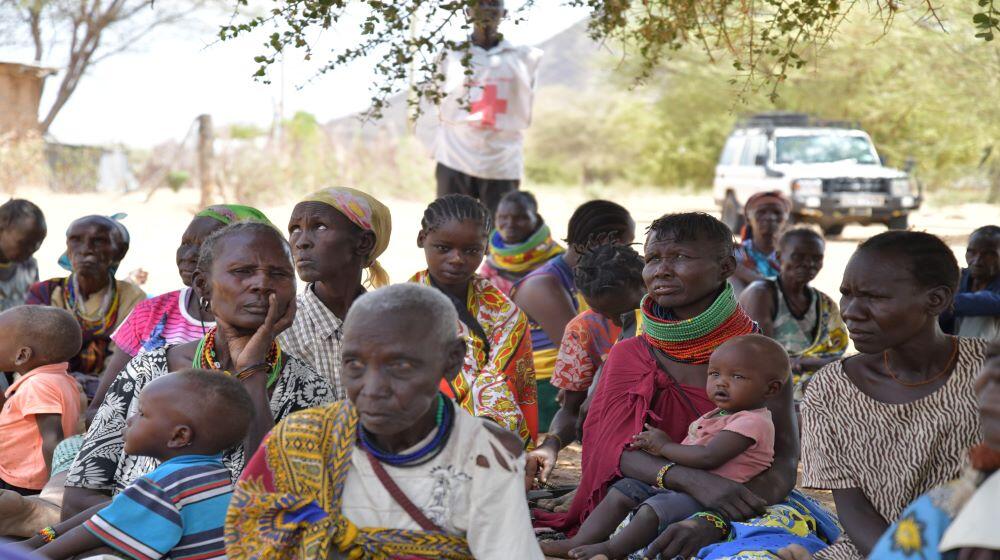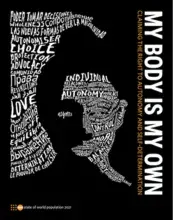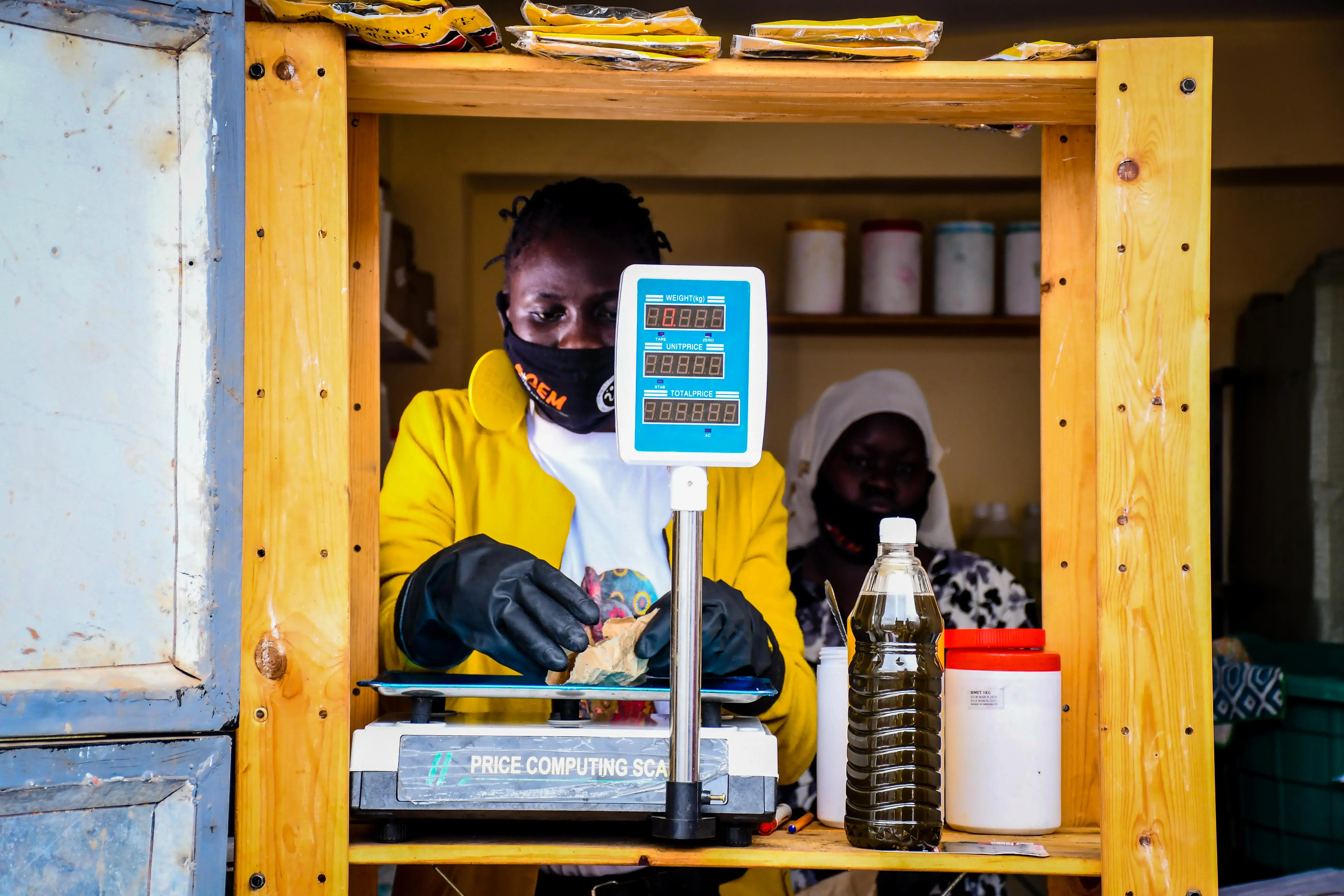At a community gathering in Lokapararai Village, Turkana County, chants of “Apei Apei ng’akankomwon ng’akan!” reverberate from a group of women sitted under a tree. Translated from the Turkana language, the words mean “one, one, nine, five,” the national gender-based violence helpline number operated by Healthcare Assistance Kenya.
Situated at the most northwestern point of Kenya, Turkana county is amongst several regions hit by a prolonged drought that has left more than 4 million people experiencing acute food insecurity. Across the country’s arid and semi-arid lands, water sources are drying up, leaving communities with no water for their families and livestock.
In some instances, one has to dig for water from dry river beds, a process that could take hours, with no guarantee of success
“We have to walk for more than seven kilometers from our homes to find water, and sometimes what we find is not safe to drink,” says 39-year-old Elimlim Ingolan. Holding her 7-month-old baby in her arms, she explains that in some instances, one has to dig for water from dry river beds, a process that could take hours, with no guarantee of success. As the drought rages on, women and girls who are primarily responsible for fetching water in the household are forced to travel further from their homes in search of the precious commodity. This heightens their risk of gender-based violence, exploitation, and abuse, more so as hostilities among communities grow, driven by desperation to secure the scarce resources available.
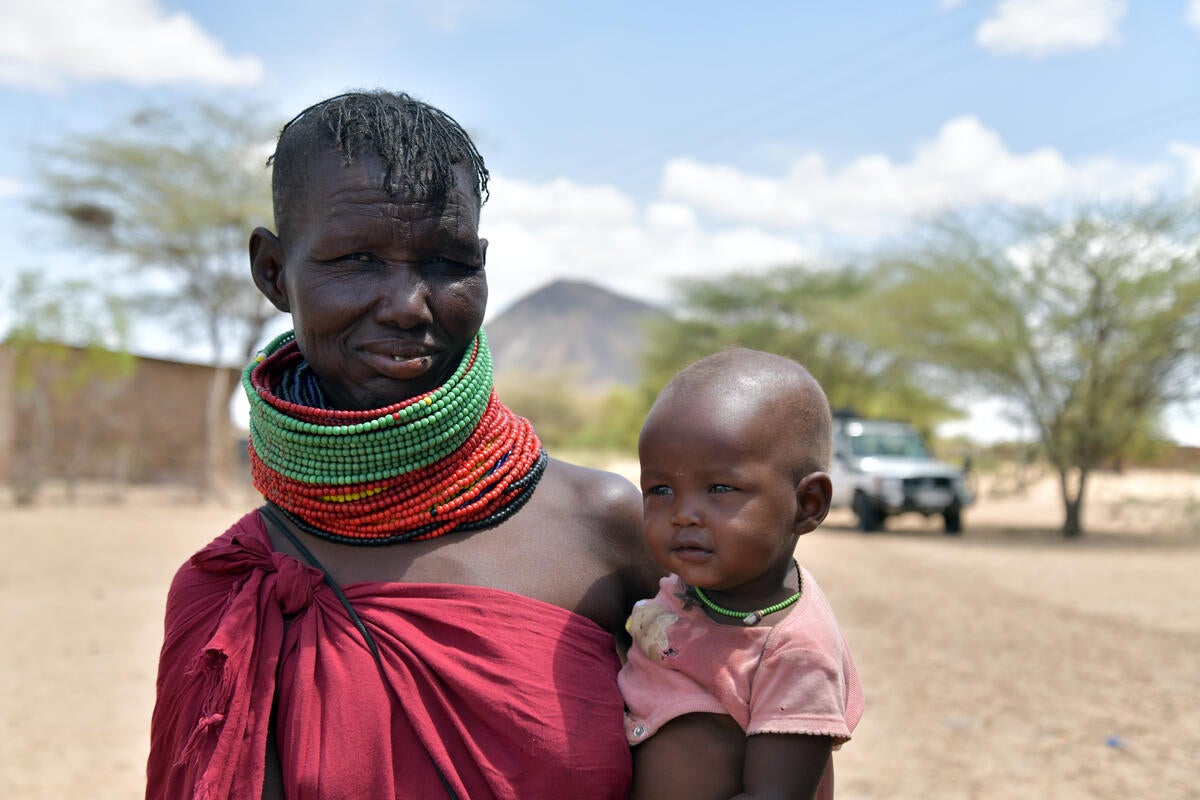
Village, Turkana County. © UNFPA Kenya
Elimlim is among women attending an integrated medical outreach organized by UNFPA and the Kenya Red Cross, bringing sexual and reproductive health and gender-based protection services closer to those worst affected by the drought. During these outreach events, clinical officers and community health volunteers from the Kenya Red Cross offer various services including mental health and psychosocial support. Communities are sensitized on access to GBV hotlines such as 1195, operated by Healthcare Assistance Kenya, and 1199, by the Kenya Red Cross, which link survivors to service points and immediate psychosocial first aid.
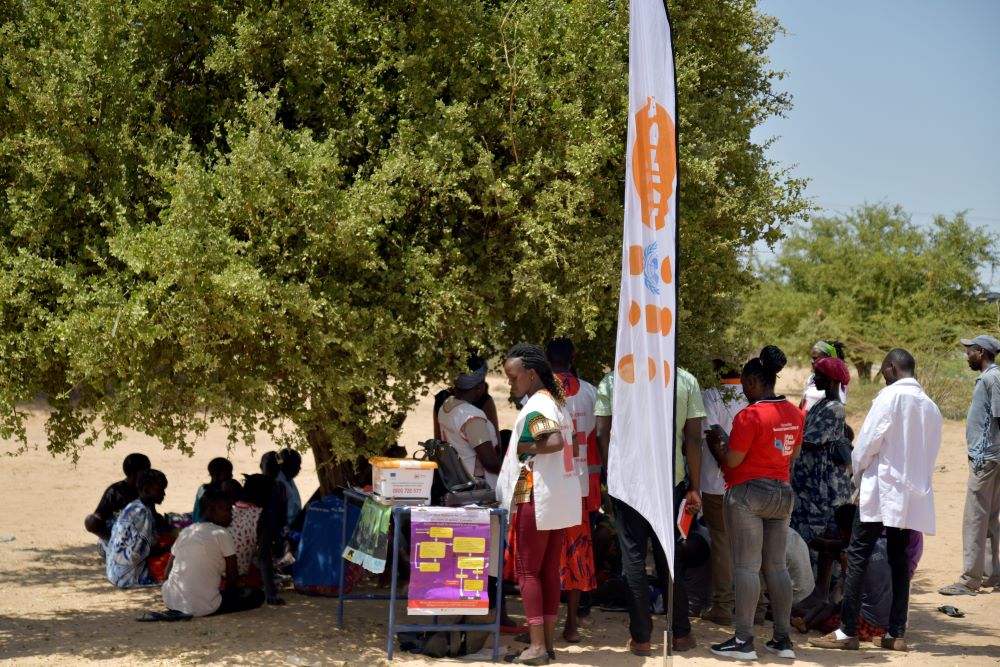
response to communities affected by the drought. © UNFPA Kenya
More than 6,000 dignity kits have also been distributed to women, girls, and adolescent boys As part of the drought response effort. In Isiolo County, dignity kits were delivered to girls in safe houses who have fled their homes to escape threats of child marriage and acute food shortages. “The dignity kits contain essential supplies to support the hygiene needs and well-being of women and girls. They include items such as solar-powered flashlights so that women and girls do not have to walk in the dark while trekking to find water, as well as whistles which can aid in calling for help,” says UNFPA Humanitarian Specialist John Wafula.
The Arid and Semi-Arid Lands (ASAL) region of Kenya has experienced four back-to-back below-average rainy seasons, leading to the longest drought in at least 40 years. Early forecasts all indicate the likelihood of the October to December 2022 short rains failing, which would lead to a worsening humanitarian situation. A joint drought appeal issued for Kenya in May 2022 by the UN Office for the Coordination of Humanitarian Affairs is calling for $320M to support nutrition, health, protection, educaton, and WASH services in the crisis-affected regions of the country.

